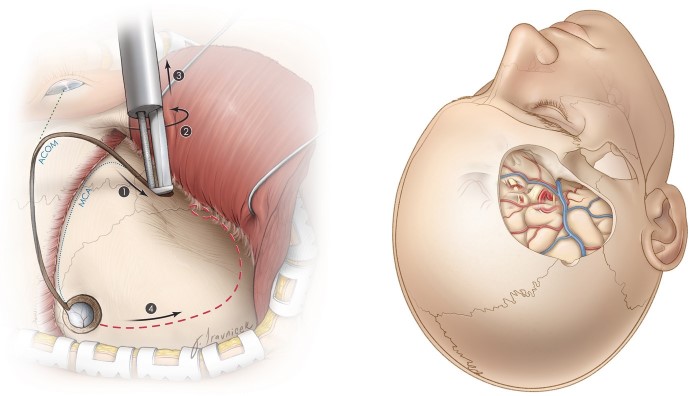Assessment of the Patient Undergoing Intracranial Surgery would include:
Careful, frequent monitoring of respiratory function, including blood gases
Monitor for signs and symptoms of complications
Monitor fluid status and laboratory data
All of the above
The Correct Answer is D
Choice A: Careful, frequent monitoring of respiratory function, including blood gases is correct, as it can detect and prevent hypoxia, hypercapnia, and acid-base imbalance that can affect the brain and other organs.
Choice B: Monitor for signs and symptoms of complications is correct, as it can identify and treat potential problems such as hemorrhage, infection, seizures, or increased intracranial pressure.
Choice C: Monitor fluid status and laboratory data is correct, as it can maintain fluid and electrolyte balance and prevent dehydration, overhydration, or cerebral edema.
Choice D: All of the above is correct, as all of these assessments are important for the patient undergoing intracranial surgery.

Nursing Test Bank
Naxlex Comprehensive Predictor Exams
Related Questions
Correct Answer is D
Explanation
Choice A: Return to hospital immediately if patient is having severe headache or vomiting is correct because it can indicate increased intracranial pressure, bleeding, swelling, or infection in the brain. These are serious complications that can cause permanent damage or death. The patient and family should seek medical atention as soon as possible and not wait for other symptoms to appear.
Choice B: Return to hospital immediately for changes in level of consciousness is correct because it can also indicate worsening brain injury or complications from a head injury. Changes in level of consciousness can include confusion, drowsiness, agitation, or loss of awareness. The patient and family should monitor the patient's mental status and alertness and report any changes to the doctor.
Choice C: Call ambulance if unable to arouse patient is correct because it can mean that the patient has lost consciousness or is in a coma. This is a medical emergency that requires immediate intervention and resuscitation. The patient and family should not atempt to move or transport the patient by themselves but call for professional help.
Choice D: All of the above are correct because they are important instructions for the patient and family to follow when discharging patient home following a head injury. They can help prevent further harm or complications and ensure prompt treatment and recovery. The nurse should educate the patient and family about these instructions and provide them with writen information and contact numbers.
Correct Answer is C
Explanation
Choice A: Encouraging lots of visitors is incorrect because it can increase the stimulation, stress, and noise level for the patient with a hemorrhagic stroke. A hemorrhagic stroke occurs when a blood vessel in the brain ruptures and bleeds into the surrounding tissue. This can cause increased intracranial pressure, brain damage, or death. The patient needs to rest and avoid any factors that can raise their blood pressure or worsen their condition.
Choice B: Out of bed with lots of walking in the halls is incorrect because it can also increase the risk of complications for the patient with a hemorrhagic stroke. The patient may have impaired mobility, balance, or coordination due to the brain injury. They may also have weakness, numbness, or paralysis on one side of the body. The patient needs to be assessed and assisted with their activity level and safety precautions.
Choice C: Nonstimulating, nonstressful environment; dim lighting, visitors are restricted is correct because it can help reduce the intracranial pressure and promote healing for the patient with a hemorrhagic stroke. The patient needs to have a quiet, calm, and comfortable environment that minimizes sensory input and emotional distress. The patient also needs to have limited and supervised visitors who are supportive and respectful of their needs.
Choice D: All of the above are incorrect because only choice c) is appropriate for the patient with a hemorrhagic stroke. Choices a) and b) are contraindicated and can harm or hinder the patient's recovery. The nurse should provide individualized and evidence-based care for the patient with a hemorrhagic stroke and follow the guidelines and protocols for stroke management.
Whether you are a student looking to ace your exams or a practicing nurse seeking to enhance your expertise , our nursing education contents will empower you with the confidence and competence to make a difference in the lives of patients and become a respected leader in the healthcare field.
Visit Naxlex, invest in your future and unlock endless possibilities with our unparalleled nursing education contents today
Report Wrong Answer on the Current Question
Do you disagree with the answer? If yes, what is your expected answer? Explain.
Kindly be descriptive with the issue you are facing.
